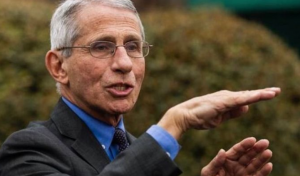The Austrian government ordered a nationwide lockdown for unvaccinated people, starting midnight Sunday. This was done in order to curb the spread of the COVID-19 in the country. This move halts unvaccinated individuals older than age 12 from leaving their homes.
They can leave their home for working, grocery shopping, going for a walk or getting vaccinated.
This step was also taken as authorities were concerned that hospital staff will no longer be able to handle the growing influx of COVID-19 patients.
“It’s our job as the government of Austria to protect the people,” Chancellor Alexander Schallenberg told reporters in Vienna on Sunday.
“Therefore we decided that starting Monday … there will be a lockdown for the unvaccinated.”
The lockdown affects about 2 million people in the Alpine country of 8.9 million people, news agency APA reported.
However, the lockdown doesn’t apply to children who are under the age of 12 because they can’t get vaccinated officialy.
The lockdown will initially last for 10 days and police have been asked to check people outside to make sure they are vaccinated, Schallenberg said.
Austria has one of the lowest vaccination rates in western Europe: only around 65% of the total population is fully vaccinated. In recent weeks, the country has faced a worrying trend in infections. The country reported 11,552 new cases on Sunday; a week ago there were 8,554 new infections.
The seven-day infection rate stands at 775.5 new cases per 100,000 inhabitants. In comparison, the rate is at 289 in neighboring Germany, which has already also sounded the alarm over the rising numbers.
“It is clear that this winter will be uncomfortable for the unvaccinated,” Schallenberg warned, adding that “the lockdown could come much faster than some might think.”
After Schallenberg’s announcement, the governor of the province of Upper Austria announced that he has planned to put a lockdown in place for the unvaccinated on Monday. It will be introduced “provided there is a legal green light from the federal government and/or it creates the legal basis for it,” governor Thomas Stelzer said in a statement to Reuters. He labelled the situation in his region as “dramatic.”
(with inputs from Associated Press)






